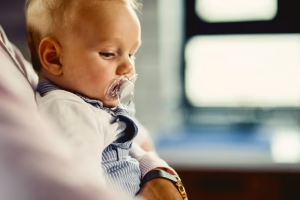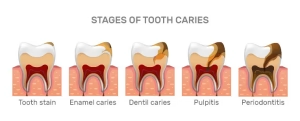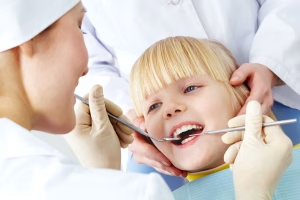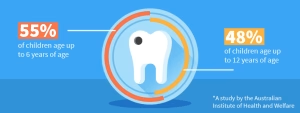Thumb Sucking – What Parents Need to Know
17 October 2023

As parents or future parents, we are constantly concerned about the well-being of our children. From their physical health to their emotional development, we strive to provide them with the best possible care. One common habit that many children develop is thumb sucking. While it may seem harmless, thumb sucking can have long-term effects on the teeth and jaws. In this blog post, we will explore the reasons why children suck their thumbs, when they should stop, and the potential damage it can cause. We will also provide tips on how to prevent the negative effects of thumb sucking on teeth.
Why Do Children Suck Their Thumbs?
Thumb sucking is a natural reflex for infants. It provides them with a sense of comfort and security, similar to how a pacifier does. Babies often suck their thumbs to soothe themselves, especially when they are tired, hungry, or anxious. This reflex usually starts in the womb and continues throughout infancy. However, some children continue to suck their thumbs beyond infancy and into early childhood.
Thumb sucking can also be a sign of boredom or a way for children to cope with stress. It can become a habit that helps them relax and feel at ease. Additionally, children may imitate their older siblings or peers who also engage in thumb sucking. It is important for parents to understand that thumb sucking is a normal behavior for young children and should not be viewed as something inherently negative.
However, if thumb sucking continues past a certain age, it can lead to dental problems. Therefore, it is essential for parents to be aware of when their child should stop sucking their thumb.
When Should Children Stop Sucking Their Thumbs?
Most children stop sucking their thumbs between the ages of two and four. By this age, they have developed other coping mechanisms and are more engaged in activities that distract them from thumb sucking. However, some children may continue the habit for a longer period, especially if they find it particularly comforting or if they have not found alternative ways to soothe themselves.
It is important for parents to monitor their child’s thumb sucking habit and encourage them to stop when they reach a certain age. Prolonged thumb sucking can have detrimental effects on the alignment of the teeth and the development of the jaw. If you are unsure about when your child should stop sucking their thumb, consult with a pediatric dentist who can provide guidance based on your child’s individual needs.
Remember, it is crucial to approach the topic with patience and understanding. Pressuring or scolding your child may only increase their desire to suck their thumb. Instead, offer positive reinforcement and rewards when they make progress in reducing or stopping the habit.
Long-Term Impact of Thumb Sucking on Teeth and Jaws
The long-term effects of thumb sucking on teeth and jaws can be significant. When a child sucks their thumb, the constant pressure can cause the front teeth to protrude or become misaligned. This can lead to an open bite, where the upper and lower front teeth do not meet when the child bites down.
In addition to dental problems, thumb sucking can also affect the development of the jaws. The pressure exerted by the thumb can alter the shape and position of the upper and lower jaws, leading to malocclusion. Malocclusion refers to an improper alignment of the teeth and jaws, which can result in difficulties with biting, chewing, and proper speech development.
It is important to address thumb sucking before these long-term effects occur. Early intervention and guidance from a dental professional can help prevent or minimize the damage caused by thumb sucking.
Potential Thumb Sucking Damage
Thumb sucking can cause a range of dental problems, including:
1. Misaligned teeth: The constant pressure from thumb sucking can push the teeth out of alignment, resulting in crooked or protruding teeth.
2. Open bite: Thumb sucking can lead to an open bite, where the front teeth do not touch when the child bites down. This can affect proper chewing and speech development.
3. Narrowing of the palate: The shape of the child’s palate can be affected by thumb sucking, leading to a narrowed arch and potential breathing difficulties.
4. Speech problems: Thumb sucking can also interfere with the development of proper speech patterns, resulting in speech difficulties or lisping.
Understanding the potential damage caused by thumb sucking can motivate parents to take action and prevent these issues from occurring.
Preventing the Negative Effects of Thumb Sucking on Teeth
As parents, there are several steps you can take to help your child stop sucking their thumb and prevent the negative effects on their teeth:
1. Positive reinforcement: Offer praise and rewards when your child makes progress in reducing or stopping thumb sucking.
2. Distraction techniques: Engage your child in activities that keep their hands occupied, such as playing with toys, drawing, or engaging in sports.
3. Set limits: Establish rules about thumb sucking, such as only allowing it at home or during specific times.
4. Encourage self-awareness: Help your child recognize when they are sucking their thumb and encourage them to find alternative ways to soothe themselves.
5. Consult a dental professional: If your child is struggling to stop thumb sucking or if you have concerns about their dental development, consult with a pediatric dentist who can provide guidance and support.
Thumb sucking is a common habit among children that can have long-term effects on their teeth and jaws. While thumb sucking is a natural reflex and provides comfort to infants, it is important for parents to be aware of when their child should stop. Prolonged thumb sucking can lead to misaligned teeth, open bite, and other dental problems. By understanding the potential damage and implementing preventive measures, parents can help their child break the habit and promote healthy dental development. Remember, approach the topic with patience, understanding, and support, and consult with a dental professional if needed.









